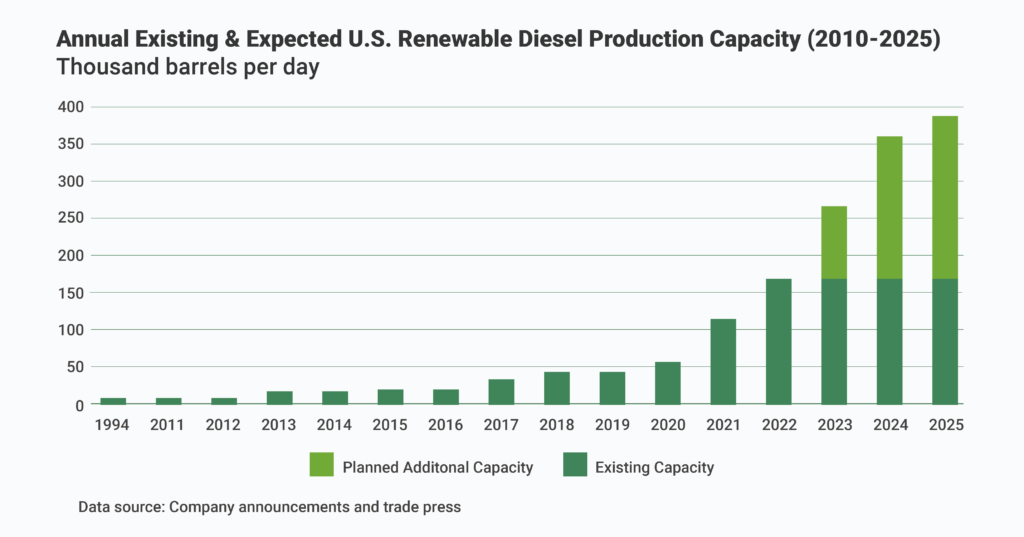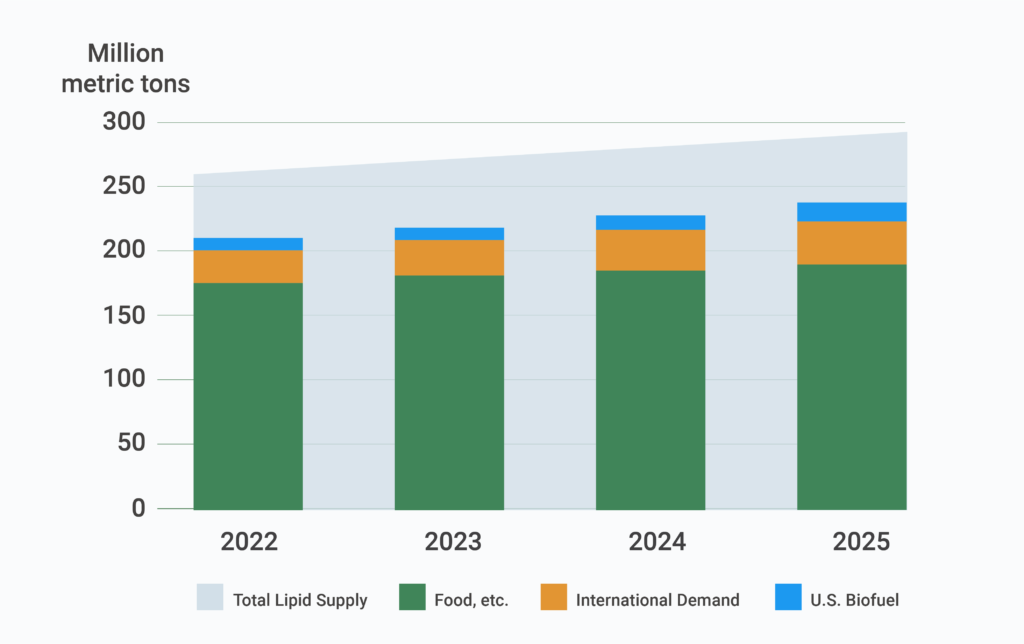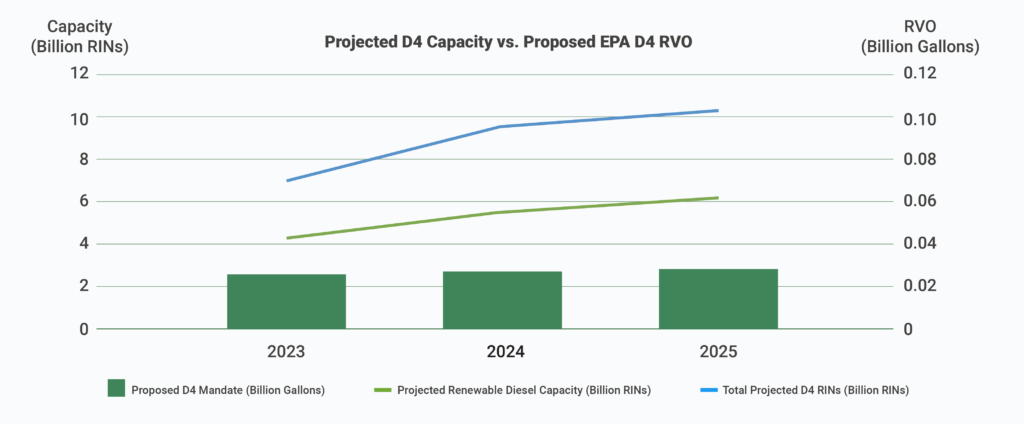The “set” Renewable Volume Obligation (RVO) for 2026 and 2027 recognizes that global feedstock supply and U.S. production capacity are more than sufficient to support a robust RVO, including at least 5.61 billion gallons of biomass-based diesel in 2026 and 5.86 billion gallons in 2027. While global feedstock supply can support an even higher RVO — a recent independent study commissioned by ABFA shows that there are sufficient feedstocks to support at least 5.75 billion gallons of biomass-based diesel — the EPA’s latest proposal shows some progress compared to previous “set” processes.
Yet, the agency’s proposed rule also risks nullifying this progress with its proposal to slash the value of RINs for fuels made with foreign feedstocks. If it advances to become part of the EPA’s final rule, this policy decision would signal a fundamental shift away from Congress’ intent for the RFS, which has historically treated imported and domestically produced fuels equally. The EPA’s proposed change could raise food and fuel prices, while increasing imports of foreign food – a fact reinforced by EPA’s own analysis that its policy will impose significant costs on U.S. biorefineries, raise fuel prices for millions of Americans, and benefit only a narrow slice of the market.
The agency’s proposed rule also contains a number of administrative details that impact stakeholders across the domestic advanced biofuels production chain, such as a change in per-unit measurement in the biomass-based diesel category from gallons to RINs. The EPA should limit these changes to avoid unintended implementation challenges while also cutting other administrative red tape to unlock the full potential of America’s advanced biofuels industry.
The final RVO rule is expected later this summer. ABFA will continue to advocate for much-needed changes to the EPA’s proposed rule, including removing restrictions on foreign feedstocks.



